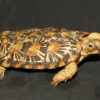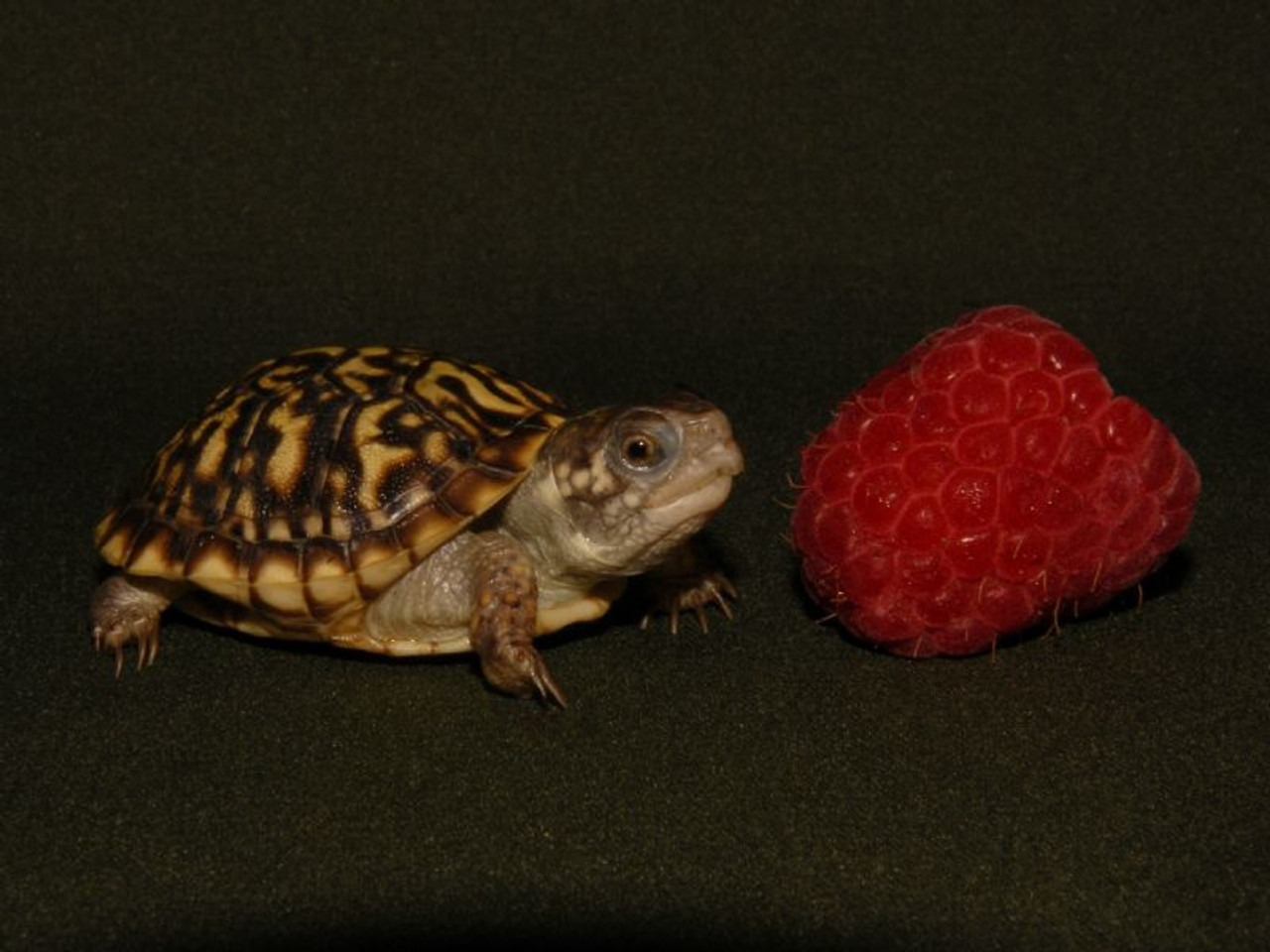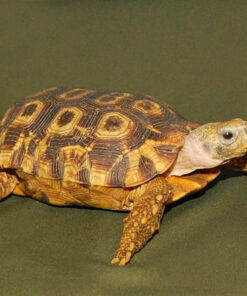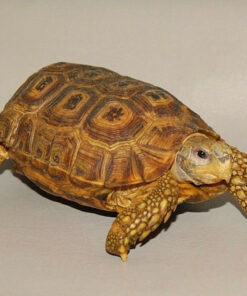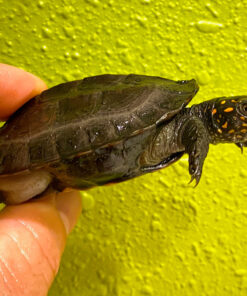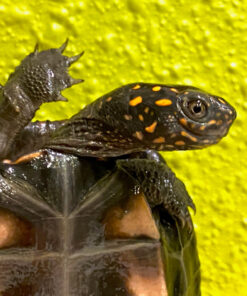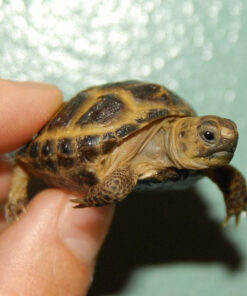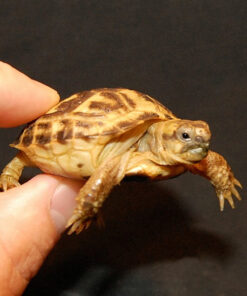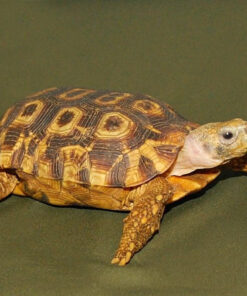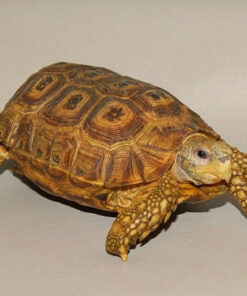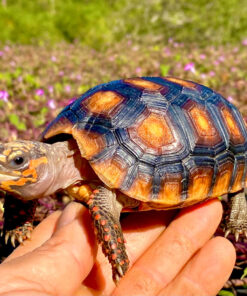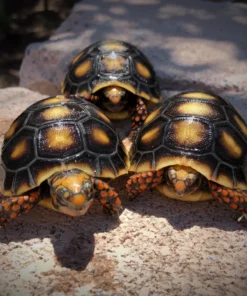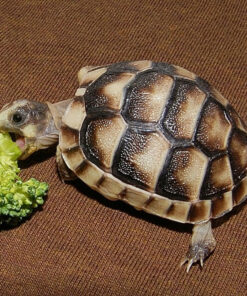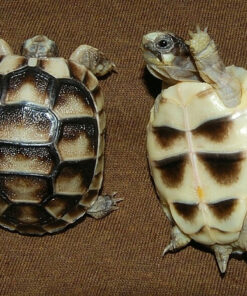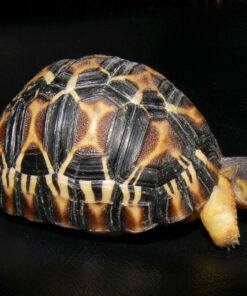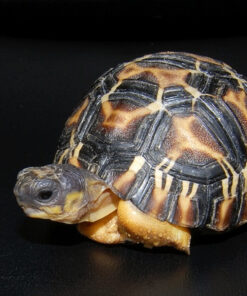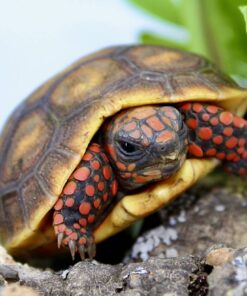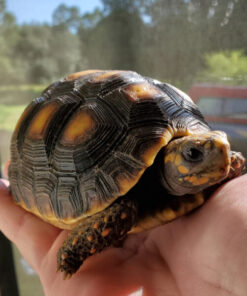$399.99
Adult Desert Ornate Box Turtle for Sale with bright striping, friendly demeanor, and well-decorated features. Diet includes turtle diet, crickets, and vitamin-dusted fresh vegetables.
Category: TORTOISE for sale
The Desert Ornate Box Turtle: A Unique and Hardy Species
The **Desert Ornate Box Turtle for sale** (Terrapene ornata luteola), a subspecies of the ornate box turtle, is an iconic reptile of the American Southwest. Known for its beautiful shell patterns, resilience, and adaptability to desert environments, this turtle is a fascinating species both in the wild and in captivity. If you’re an enthusiast looking for **ornate box turtles for sale**, this guide will help you understand their unique characteristics, care requirements, and what to expect when bringing a **baby ornate box turtle** into your home.
Physical Characteristics of the Desert Ornate Box Turtle for sale
The **Desert Ornate Box Turtle** is visually striking, thanks to its ornate shell patterns and compact size. Typically reaching around 4.5 to 6 inches in length, this turtle features a high-domed shell with intricate markings of yellow, orange, or white lines that radiate from the center of each scute (the individual plates on their shell). These markings resemble sunbursts and serve as excellent camouflage in their native desert habitats, helping them blend in with the sandy and rocky environment.
One of the most distinctive features of this turtle is its hinged plastron (the underside of the shell), which allows it to close its shell completely when threatened. This is a defense mechanism unique to box turtles, enabling them to protect themselves from predators by becoming nearly impenetrable.
Males and females can be distinguished by a few physical traits. Males often have longer tails, red or orange eyes, and a concave plastron to aid in mating. Females, on the other hand, usually have brown or yellow eyes and a flat plastron.
Natural Habitat and Behavior of the desert ornate turtle for sale
In the wild, **Desert Ornate Box Turtles** are found primarily in the arid regions of the southwestern United States, including New Mexico, Arizona, and parts of Texas. They inhabit deserts, grasslands, and scrublands, thriving in areas with loose, sandy soil where they can dig and burrow. They are often found near temporary water sources, such as puddles after rainstorms, but can go long periods without access to water due to their ability to retain moisture from their food.
These turtles are diurnal, meaning they are most active during the day, especially in the cooler hours of the morning and late afternoon. In the heat of the day, they often seek shelter by burrowing into the ground or hiding under vegetation. **Ornate box turtles** are also known for their long periods of inactivity during the dry months, where they enter a state of brumation (similar to hibernation) to conserve energy and water.
Diet and Feeding
In the wild, the **ornate box turtle** is omnivorous, feeding on a diverse diet of plants, insects, and small animals. Their diet includes grasses, flowers, fruits, and vegetables, as well as earthworms, beetles, grasshoppers, and the occasional carrion. This varied diet allows them to thrive in environments where food sources may be scarce.
In captivity, it’s essential to replicate their natural diet as closely as possible to ensure their health and longevity. A balanced diet should consist of a mix of leafy greens, vegetables, and protein sources. Some recommended greens include dandelion greens, collard greens, and romaine lettuce. You can also offer them vegetables like carrots, squash, and bell peppers.
For protein, you can provide them with earthworms, crickets, mealworms, and other insects, which can be purchased from pet stores. It’s important to supplement their diet with calcium and vitamin D3 to ensure healthy shell and bone development. Dust their food with calcium powder a few times a week, and ensure they have access to a UVB light to help them synthesize vitamin D3.
Housing Requirements for Desert Ornate Box Turtles for sale
Before searching for a **Desert Ornate turtle for sale**, it’s essential to prepare a proper habitat for them. These turtles have specific needs, especially when it comes to their environment, so creating a suitable enclosure is crucial for their well-being.
Outdoor Enclosures
If you live in a climate that mimics the natural habitat of the **Desert Ornate Box Turtle**, an outdoor enclosure is ideal. The enclosure should be secure, with walls deep enough to prevent the turtle from digging out and tall enough to prevent them from escaping. Ensure that the enclosure has plenty of shady spots, rocks, and logs for hiding, as well as sunny areas where the turtle can bask.
A shallow water dish should always be available, even though desert box turtles do not require constant access to water. They will soak in it occasionally to hydrate themselves, especially during hot, dry weather. The enclosure should also include sandy or loose soil for digging and burrowing.
Indoor Enclosures
For those who cannot provide an outdoor habitat, an indoor enclosure is a suitable alternative. A large tank or tortoise table, at least 40 gallons in size, is recommended. The enclosure should have a substrate that allows for burrowing, such as a mix of sand and soil or coconut coir. You’ll need to create a temperature gradient, with a basking spot that reaches 85-90°F and a cooler side around 75°F. A UVB light is essential for their health, as it aids in calcium absorption and helps prevent metabolic bone disease.
Ornate box turtles also appreciate hiding spots, so provide them with rocks, logs, or commercially available turtle hides to offer them places to retreat.
Lifespan and Growth
The **ornate box turtle** is a long-lived species, with individuals often living for 30 to 50 years or more in captivity when properly cared for. Their slow growth and long lifespan mean that purchasing one is a long-term commitment. **Baby ornate box turtles** are particularly delicate and require attentive care to ensure they grow up healthy.
These turtles grow slowly, taking several years to reach their adult size. Hatchlings are small, typically only an inch or two in length, and they are more vulnerable to changes in their environment, so they require a stable, controlled enclosure with proper lighting, temperature, and diet.
Ornate Box Turtles for Sale: What to Consider
If you’re looking for an **ornate box turtle for sale**, it’s important to purchase from a reputable breeder or supplier. Wild-caught turtles are often stressed, more prone to disease, and have contributed to the decline of wild populations. Captive-bred turtles are generally healthier and more accustomed to living in captivity, making them a better choice for pet owners.
Before buying, ensure that the seller provides detailed information about the turtle’s health, origin, and care needs. Ask if the turtle has been bred in captivity and whether it has been properly cared for with a good diet and UVB exposure. The **ornate box turtle price** can vary depending on the age, health, and availability of the turtle, but typically ranges from $100 to $300 or more.
Baby Ornate Box Turtles: Special Care Considerations
**Baby ornate box turtles** are especially delicate and require careful handling and care. When purchasing a **baby ornate box turtle for sale**, make sure the turtle is healthy, active, and alert. Their enclosure should have a soft, moist substrate to help maintain hydration, as young turtles are more prone to dehydration.
They will also need a higher protein diet than adults, as they are growing rapidly. Offer them insects like small crickets or mealworms, in addition to finely chopped vegetables and leafy greens. Regular access to clean water for soaking is essential, and the enclosure should have a stable temperature to avoid stress on the young turtle.
Conservation and Ethical Considerations
The **Desert Ornate Box Turtle** is listed as a species of concern in some areas due to habitat loss, road mortality, and overcollection for the pet trade. In some states, it is illegal to collect them from the wild or to sell them without proper permits.
When looking to purchase an **ornate box turtle**, it’s crucial to support ethical breeders who prioritize conservation and do not contribute to the depletion of wild populations. Always inquire about the turtle’s origin and ensure that it has been bred in captivity.
Why Ornate Box Turtles Make Great Pets
The **ornate box turtle** is a fascinating species that can make a wonderful pet for dedicated reptile enthusiasts. Their unique behavior, striking appearance, and long lifespan make them a rewarding companion. However, they do require specialized care, including proper diet, housing, and lighting, so it’s important to be fully prepared for the commitment.
Their hardy nature and ability to adapt to different environments make them a good choice for both beginner and experienced reptile keepers. Whether you’re purchasing a **Desert Ornate turtle for sale** or adopting a **baby ornate box turtle**, these turtles can bring years of enjoyment and fascination into your home.
Conclusion
In summary, the **Desert Ornate Box Turtle** is a unique and hardy species that can thrive both in the wild and in captivity when provided with the right care. Whether you’re drawn to their beautiful shell patterns or their intriguing behaviors, these turtles offer an engaging pet-keeping experience. Before purchasing an **ornate box turtle for sale**, make sure you are fully prepared for the commitment, as these long-lived reptiles require proper housing, diet, and care to stay healthy and thrive.
When looking for **baby ornate box turtles** or adult **ornate box turtles for sale**, always choose a reputable breeder or supplier, and be sure to create a habitat that mimics their natural environment to give your turtle the best possible life.
Related products
Sale!
TORTOISE for sale
TORTOISE for sale
$349.99
TORTOISE for sale
Northern Zombensis Hingeback Tortoise for Sale – Exotic Pet Option
$249.99
TORTOISE for sale
$274.99
TORTOISE for sale
Baby Marginated Tortoise for Sale – Adopt the Perfect Exotic Pet
$124.99
TORTOISE for sale
$199.99

